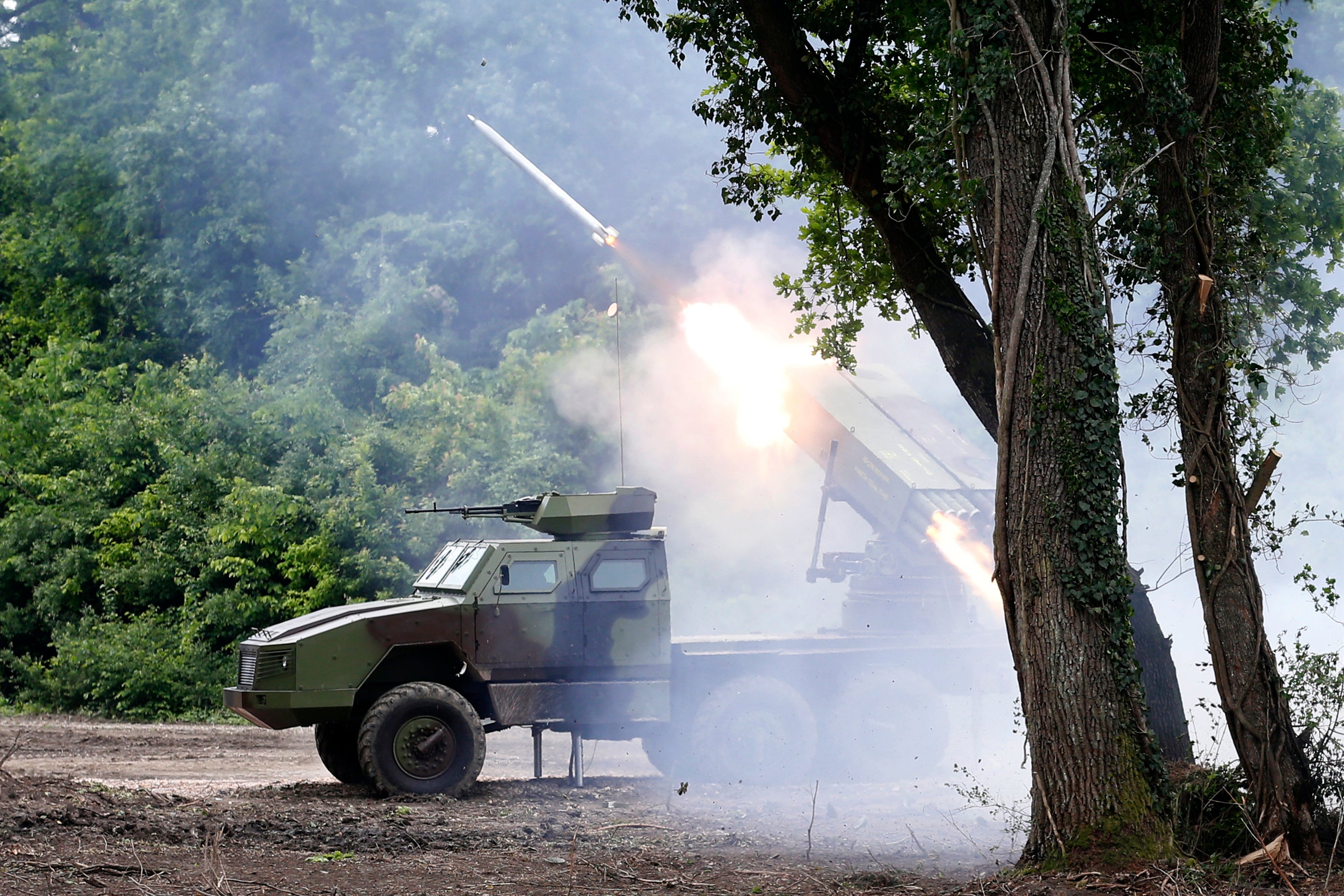Russia seeks explanation for Serbian rockets in Ukraine
Russia is seeking an official explanation from its ally Serbia about media reports saying the Balkan country has delivered thousands of rockets to Ukraine

Your support helps us to tell the story
From reproductive rights to climate change to Big Tech, The Independent is on the ground when the story is developing. Whether it's investigating the financials of Elon Musk's pro-Trump PAC or producing our latest documentary, 'The A Word', which shines a light on the American women fighting for reproductive rights, we know how important it is to parse out the facts from the messaging.
At such a critical moment in US history, we need reporters on the ground. Your donation allows us to keep sending journalists to speak to both sides of the story.
The Independent is trusted by Americans across the entire political spectrum. And unlike many other quality news outlets, we choose not to lock Americans out of our reporting and analysis with paywalls. We believe quality journalism should be available to everyone, paid for by those who can afford it.
Your support makes all the difference.Russia is seeking an official explanation from its ally Serbia about reports that the Balkan country has delivered thousands of rockets to Ukraine for its fight against Russia's invasion.
Russian Foreign Ministry spokeswoman Maria Zakharova expressed “deepest concern” about the reports, which first came from pro-government Russian media last month.
“We are following this story,” Zakharova said in a statement posted on the Russian Foreign Ministry website late Thursday. She added that the possible arming of Ukraine represented a “serious question” for Serbian-Russian relations.
The media reports said a Serbian state arms factory recently delivered some 3,500 missiles for the Grad multiple rocket launchers used by both the Ukrainian and Russian armed forces. The 122 mm rockets were allegedly transported to Ukraine via Turkey and Slovakia.
Serbian Defense Minister Milos Vucevic has denied the country exported the missiles to Ukraine but left open the possibility they could have gotten there via a third party.
“If private companies buy weapons in third states’ markets and then sell them to other companies in other countries, that is not a question for Serbia, that is international trade,” he said.
Serbia is Moscow’s closest ally in Europe, with historic, religious and cultural ties that are bolstered by decades of pro-Russian propaganda campaigns in the Balkan country.
Russia backs Serbia’s claim over its former province of Kosovo, which declared independence in 2008 with Western support. And Serbia has refused to impose sanctions on Moscow over the invasion.
Western officials fear Russia could use simmering tensions in Kosovo to try to destabilize the Balkans and avert some attention from the invasion of Ukraine.
___
Follow AP's coverage of the war in Ukraine: https://apnews.com/hub/russia-ukraine